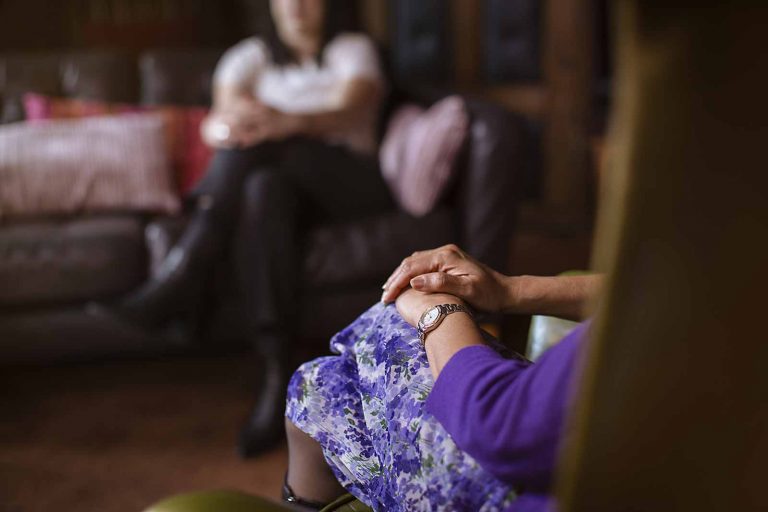Psychosis
What is psychosis?
The word psychosis is used to describe when a person loses some contact with reality.
You may experience unusual or distressing perceptions such as hallucinations or delusions. These may be accompanied by a reduced ability to cope with usual day-to-day activities and routines. Someone who has these unusual experiences is described as having an episode of psychosis.
Psychosis is most likely to occur in young adults in their twenties and can affect anyone including men and women from all walks of life. It is quite common and approximately four out of every hundred people will experience a psychotic episode at some time in their lives. However, most people make a full recovery from the experience.
Psychosis can have an influence on the following:
- Perception – seeing, understanding and interpreting reality
- Cognition – thinking processes, logical progression of thoughts, ideas and memories e.g. believing that you are being followed
- Mood – emotions, sadness, anxiety, depression, feeling detached or extremely low
- Personality – sense of self and identity e.g. feeling you are not really yourself
- Behaviour – actions and responses. Sometimes a person will feel they are no longer in control of their own thoughts
- Movement – gestures, involuntary body movements
Each person that develops psychosis will have their own unique set of symptoms and experiences. These will vary depending on their circumstances. In general, there are three main symptoms associated with a psychotic episode
Symptoms of psychosis
- Hallucinations - where someone sees, hears, smells, tastes or feels things that don't exist outside their mind
- Delusions - where a person has an unshakeable belief in something untrue
- Confused and disturbed thoughts
Cause of psychosis
Sometimes psychosis is caused by a specific mental health condition:
- Schizophrenia
- Bipolar Disorder
- Severe depression
Psychosis can also be triggered by events:
- A traumatic experience
- Stress
- Alcohol misuse
- Drug misuse
- Side effects from a prescribed medicine
- A physical condition, for example, a brain tumour
Treatments for psychosis
The treatment is usually a combination of medicine and psychological therapies. If the symptoms are severe then it is likely the person will be admitted to a mental health hospital.




Medication for psychosis
Anti-psychotic medication may be prescribed to help manage the symptoms. Your consultant may also prescribe antidepressants or mood stabilisers, if you experience mood based symptoms. Your consultant will discuss their recommendations with you and explain any side effects that you may experience.
Therapy approach for psychosis
Talking therapies can help you understand your experiences. Your consultant may refer you to a therapist who you will see on a 1:1 basis They may offer Cognitive Behavioural Therapy (CBT). This helps by examining the way you feel about a situation, how you act based on your thoughts and how thinking and behaviour together influence how you feel. This has proved to be successful in treating psychosis.
Outcomes
Research has shown that early treatment combining medication, CBT and family support reduces the risk of further episodes.
If you are concerned about a family member or friend who may be a risk to themselves or others you should take them to the Emergency Department of their local hospital, or call for an ambulance. They may require a Mental Health Act Assessment. They can be detained (often called sectioned) under the Mental Health Act and will likely be admitted to hospital.
We're here to help you
Call Cardinal Clinic on 01753 910729
Or refer yourself for care, make an enquiry
or arrange a free nurse consultation via our
help hub.
A calm environment dedicated to your care
Rated ‘Outstanding’ for care and overall ‘Good’ by the Care Quality Commission, Cardinal Clinic works tirelessly to offer an elevated patient experience from exquisite and fresh chef-prepared meals, to comfortable and relaxing accommodations. Situated in a private estate in the heart of Windsor’s green belt, residential in-patient care, day care and out-patient services are offered.


